- Home
- Robert B. Parker
Sudden Mischief
Sudden Mischief Read online
Robert B Parker
Sudden Mischief
chapter one
WE WERE AT the Four Seasons Hotel, in the Bristol Lounge. Bob Winter was playing "Green Dolphin Street" on the piano. I was drinking beer and Susan was doing very little with a glass of red wine. There were windows along the Boylston Street side of the room that looked out on the Public Garden, where winter was over, the swan boats were being cleaned, and had there been a turtledove awake at this hour we'd have almost certainly heard his voice. "I need a favor," Susan said to me.
Her black hair was shiny and smelled slightly of lavender. Her eyes were impossibly big, and full of intelligence and readiness, and something else. The something else had to do with throwing caution to the winds, though I'd never been able to give it a name. People looked at her when she came in. She had the quality that made people wonder if she were someone important. Which she was.
"You know I'm the only guy in the room knows the lyrics to `Green Dolphin Street,' " I said, "and you want me to sing them softly to you."
"Don't make me call the bouncer," she said.
"At the Four Seasons? You'd have to tip him before he threw you out."
"It's about my ex-husband," Susan said.
"The geek?"
"He's not a geek," Susan said. "If you knew him, you'd kind of like him."
"Don't confuse me," I said.
Winter played "Lost in Loveliness." The waitress looked at my empty beer glass. I nodded. Susan's glass was still full.
"He came to see me last week," Susan said. "Out of the blue. I haven't seen him in years. He's in trouble. He needs help."
"I'm sure he does," I said.
"He needs help from you."
My second beer came. I thought about ordering a double shot of Old Thompsons to go with it but decided it was more manly to face this moment sober. I drank some of my beer.
"Okay," I said.
"I…" She stopped and looked out the windows for a moment. "I guess I'm kind of embarrassed to ask you," she said.
"Yeah," I said. "It is kind of embarrassing."
"But I am going to ask you anyway."
"Who else?" I said.
She nodded and picked up her glass and looked at it for a moment and put it down without drinking.
"Brad is being sued by a group of women who are charging him with sexual harassment."
I waited. Susan didn't say anything else.
"That's it?" I said.
"Yes."
"And what was it you thought I could do about it?"
"Prove them wrong," she said.
"Maybe they're right," I said.
"Brad is on the very edge of dissolution. If he gets dragged into court on this kind of thing… he hasn't got enough money to defend himself."
"Or pay me," I said.
Susan nodded. "Or pay yes," she said.
"That's encouraging," I said.
"I don't love him," Susan said. "Maybe I never did. And he hasn't been in my life for years, but…"
"But you used to know him and you don't want to see him destroyed."
"Yes."
"And you don't know what else to do, or who else to ask."
"Yes."
"So," I said. "I'll take the case."
"And the fee?"
"If I get him off, you have to ball my socks off," I said.
"And if you don't get him off?"
"I have to ball your socks off."
The something I had no name for flickered in Susan's eyes.
"Sounds fair to me," she said.
"Okay, I'm on the case," I said. "Tell me about him."
"His name is Brad Sterling."
"Sterling?"
Susan looked down at the table.
"He changed it," she said.
"From Silverman. As in sterling silver, how precious."
"How un-Jewish," Susan said.
"How come you kept his name?"
"When we were first divorced I guess it was just easier. It was on my license, my social security card, my checking account."
"Uh huh."
"And I guess it was a way of saying that even if I weren't married, I had been."
"Like a guy wearing his field jacket after he's been discharged."
"Except that the jacket will still keep him warm."
"You wish you'd gone back to your… what's the correct phrase these days?"
"Birth name," Susan said.
"Thank you. Do you wish you'd kept your birth name?"
"I suppose so, but by the time I was healthy enough to do that, I was healthy enough not to need to."
"Susan Hirsch," I said.
"Sounds odd, doesn't it."
"Makes me think of sex," I said.
"More than Silverman?"
"No, that makes me think of sex too."
"How about Stoopnagel?"
"Yeah," I said. "That makes me think of sex."
"I think I'm seeing a pattern here," Susan said.
"That's because you're a trained psychologist," I said. "Tell me about Sterling."
"I was a freshman at Tufts," Susan said. "He was at Harvard, my roommate and his roommate were cousins and we got fixed up."
Susan was many things, and almost all of them wondrous, but she was not succinct. I minded this less than I might have, because I loved to listen to her talk.
"He was a tackle on the Harvard football team. The only Jew ever to play tackle in the Ivy League, he used to say. I think he was kind of uneasy being Jewish at Harvard."
I made eye contact with the waitress and she nodded.
"He was very popular, had a lot of friends. Got by in class without studying much. I really liked him. We were married the week after graduation."
"Big wedding?"
"Yes," Susan said. "Have I never talked about this with you?"
"No."
"Didn't you ever want to know?"
"I want to know what you want to tell me."
"Well, I saw no point to talking to you about other men in my life."
"Up to you," I said. "I don't need to know. And I don't need to pretend there weren't any."
She didn't speak for a time. She slowly turned her wine glass by the stem and looked at me as if thinking about things.
"I always assumed it would bother you," she said.
"I'm entirely fascinated with you," I said. "And what you are is a result of what you were, including the other men."
She was quiet again, looking at me, turning her glass. Then she smiled.
"It was a very big wedding at Memorial Chapel at Harvard. Reception at the Ritz."
"Brad's family had money," I said.
"Not after the reception," Susan said. "Actually, Brad's father ran a salvage business in Chelsea. But by the time I came along he'd moved the family to Wellesley. Brad went to Harvard. His sister went to Bryn Mawr."
The waitress brought me another beer. Susan took a sip of her wine. Racing to catch up.
"Then what?" I said.
"Then not much," Susan said. "His father bought us a little house in South Natick."
"Just across the line from Wellesley."
"Yes. Brad's mother was ten minutes away on Route 16."
"Perfect."
"And Brad got a job with an advertising agency in town."
"You?"
'I stayed home and wore cute aprons and redid my makeup every afternoon before he came home for supper-"
"Supper?" Susan smiled.
"I know," she said. "It was pathetic. I couldn't cook. I didn't want to learn. I hate to cook."
"Is that so," I said.
"The house was a four-room Cape with an unfinished attic. I could stand in the hall and see all four rooms."
"You can do
that now," I said. "In your apartment."
"Yes, but I live there alone."
"Except for Pearl," I said.
"Pearl is not a person," Susan said.
"Try telling her that."
"I hated the house. I hated being alone in it all day, and then when he came home I got claustrophobic being with him all night, sharing the same bedroom, the same bath."
"Space is nice," I said.
"The feeling is still with me. It's why we don't live together."
"The way we live seems about right to me," I said.
"I know, but… when I married Brad, if people moved to twin beds you figured divorce was imminent."
"You didn't work."
"No. It would have embarrassed Brad to have his wife working. It would have implied he couldn't support her."
"Children?"
"Oh, God, yes. He wanted me to have children."
"And you didn't want to."
"Not then."
"Because?"
"I never knew. I just knew I couldn't."
"You know now?"
"It's something I've had a hard time thinking about," she said. "I must have sensed that this wasn't the right marriage to bring children into."
"Not so long ago you wanted us to have a kid."
"This isn't about me," Susan said.
"You think I'd try to rescue Brad from the feminists if you didn't ask me?"
"I know," Susan said. "But it's a part of my life I don't like to talk about."
"Like the part where you and I were separated?"
She was silent looking into her nearly full wine glass.
"If you had a patient," I said, "who couldn't talk about certain parts of her life, what would you tell her?"
Susan continued to look into her wine glass. Her shoulders looked stiff and angular. She didn't speak.
"I withdraw the question," I said.
She didn't look up from her wine glass. "Thank you," she said. Her voice was tight.
"Got an address for Brad?" I said.
Silently she found a business card in her purse and took it out and handed it to me. The card read Brad Sterling, Promotions. Nice card. Good stock. Raised lettering. Not the kind of card you passed out if you were on the verge of dissolution. Unless you didn't want people to know you were on the verge of dissolution. Susan sat quietly while I looked at the card. Her shoulders hadn't eased much. She didn't look at me.
"You sure you want me to look into this?" I said.
"Absolutely," she said.
I nodded. This thing showed every sign of not working out well for me.
"I'll get right on it in the morning." I said.
chapter two
TWO INSURANCE BUILDINGS tower over the Back Bay. The Hancock building is pretty good-looking if the windows don't fall out. The Prudential is ugly. Brad was in the Prudential. On the thirty-third floor. His receptionist looked like a J. Crew model, blonde Dutch boy haircut and slightly hollow cheeks. "Do you have an appointment?" she asked.
She thought it unlikely but was being professional about it. The waiting room was empty.
"No," I said. "I don't."
She looked doubtful. Doubtful was a cute look for her.
"Well," she said, "I'm not sure…"
I gave her my card. The one that had my name and address but no reference to me being a sleuth.
"Tell him his ex-wife sent me."
Now she looked slightly embarrassed. Also a cute look. I suspected that she had practiced all of them in a mirror and discarded any that weren't cute.
"I, ah, there have been several…" she said.
"Susan," I said. "Susan Hirsch."
It was simple perversity that made me use her maiden name. The receptionist smiled appreciatively, as if I had told her an important thing. Her hand twitched as if she were going to pick up the phone but she didn't. Instead she said, "Excuse me," and stood and went into the inner office. She was there maybe five minutes and came out.
"Mr. Sterling has made room for you," she said.
"How nice," I said.
She gestured me into Sterling's office. It was a corner office with windows facing north and west so you could see the Charles River and Fenway Park and all the way to the horizon. Sterling stood as I came in and walked around his desk to meet me. He was a tall guy, leaner than I would have thought for a tackle, with a good tan. A good tan, in Boston, in March, means you've been south recently or want people to think so. His hair was longish and steel gray and went nicely with the tan. His gray pinstripe suit fit him well. He was wearing good cologne.
"Spenser, Brad Sterling," he said. "Nice to meet you."
His handshake was firm and genuine. He looked right at me as we shook. Then he motioned me toward one of the black captain's chairs in front. of his desk. It had the Harvard seal on the back. On top of a file cabinet was a Harvard football helmet and framed on the wall was his varsity letter certificate.
"Pull up," Sterling said, "and sit."
I did. He went back around his desk and sat in his high-backed executive swivel and leaned back.
"Patti said something about Susan Hirsch," he said.
"Actually she still uses her married name," I said.
"Really. I'll be damned. I haven't seen Susan in years."
"Actually, you have," I said. "You saw her last week."
Sterling smiled. "Except then," he said.
"And you told her you were in trouble, and you asked her for help."
"She told you that?"
"Uh huh."
He shook his head.
"Susan was always a little dramatic," he said.
"Yeah," I said. "Hysterical. Just because her ex-husband whom she hasn't seen in twenty years shows up asking for help…"
"Well, really, I didn't ask for help."
"Oh," I said. "Susan misunderstood. She thought you needed help and sent me over to provide it."
"What's your relation to Susan."
"Lover," I said.
Sterling widened his eyes and made a humorous snorting sound.
"Well, you are, by God, direct, aren't you?"
"Saves time," I said.
Sterling had his hands tented in front of him, the fingertips brushing his chin. He tapped his fingertips together a few times while he looked at me.
"Lesson there for me," he said. "That would make you the private eye."
"It would."
"I've heard about you. Always sort of amused me Susan would end up with… a private detective."
"Hard to figure," I said. "Want to tell me about your troubles?"
"So you can help me?"
"Yeah."
"Because Susan asked you to?"
"Yeah."
"How do you feel about helping out your girlfriend's ex?"
"She says I'll like you," I said.
He grinned. His teeth were very white and even. "Of course you will," he said. "Everybody likes me."
"Susan says that you're being sued for sexual harassment."
"So, you're saying that somebody doesn't like me?"
"Tell me about it," I said.
He smiled and shrugged and leaned back farther in his chair and put his feet on the desk.
"I was running a thing at the Convention Center. Big charity do. Brought in Sister Sass from New York, had a ton of celebarooties. Message from the President. Lot of press."
"Which charity?"
"Sort of a fund-raiser gang-bang for all the deservings, you know? Care and placement of orphans, shelter for battered women, AIDS research, other intractable diseases, help for the homeless, safe streets programs, everybody in one swell foop."
"And?"
"And it was a blockbuster. I slept about two hours a night pulling it together, but it was a whizbang when we got it airborne."
"I sort of meant `and the harassment'?"
"Oh, sure, of course."
Out the west window I could see the shadow of a cloud drift over Kenmore Square toward Fe
nway Park.
A little less than a month and baseball would be back. It seemed too early. It always did in March. Too cold to play ball, the ground too soggy. The wind too bold. But April always came and they played. I looked back at Sterling. He was sitting at his desk looking friendly.
"And the harassment?" I said.
"Nothing much, really," he said. "All these charities have a ton of volunteer do-gooders around. Mostly women, the kind who think they're important because their husbands are rich. And a lot of them are goodlooking in that rich wife way, you know. Perfect hairdos, expensive perfume, very silky. So I may have flirted with a couple of them, and they took it wrong."
"How would you define flirting?" I said.
I was almost sure that I opposed sexual harassment. I was less sure that I knew exactly what it was.
"You know, kidding around, telling them how goodlooking they were. Hell I thought- they'd be flattered. Most women are. Cripes, if they weren't married I'd figure them for a bunch of lesbos."
"Which is it, a `couple,' or a `bunch?' "
'There are four women participating in the lawsuit," Sterling said. "One of them is married to Francis Ronan."
"The law professor," I said.
"Him," Sterling said. "Talk about your luck running bad."
"You didn't touch these women?"
"Absolutely not," Sterling said.
"Were you obscene?"
"No, of course not."
"Did they work for you?"
"Not really. They were volunteers. I mean I was at the top of the pyramid, I suppose, and they were down the slope a bit. But they didn't work for me."
"If you lose, can you pay the judgment?"
"That's not the point. I'm…" He grinned. "I'm an innocent man."
"But you could pay it."
"Certainly."
"You're not at the brink of, ah, dissolution?"
"Dissolute, yes, whenever possible," Sterling said. "Dissolution? Not hardly."
Sterling made a gesture that encompassed the office and the view. "This look like dissolution?"
"All it proves is they haven't evicted you," I said.
Sterling laughed out loud.
"A hard man is good to find," he said when he had stopped laughing.
"You want me to look into this a little?" I said. "See if I can fix it?"
"I wish someone would fix Francis Ronan," he said.
"Yes or no?"
"What do you charge?"

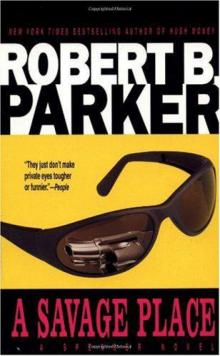 A Savage Place s-8
A Savage Place s-8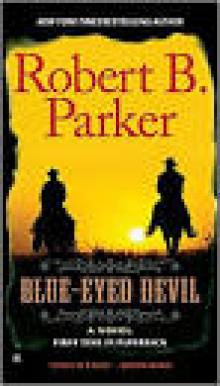 Appaloosa / Resolution / Brimstone / Blue-Eyed Devil
Appaloosa / Resolution / Brimstone / Blue-Eyed Devil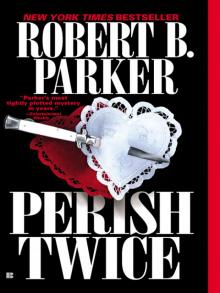 Perish Twice
Perish Twice Spare Change
Spare Change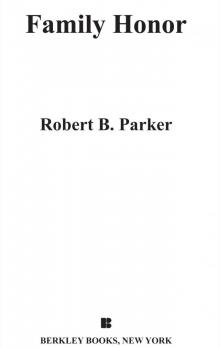 Family Honor
Family Honor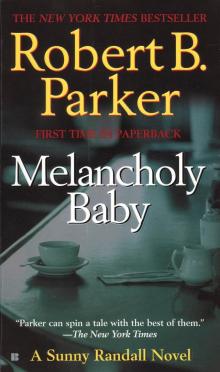 Melancholy Baby
Melancholy Baby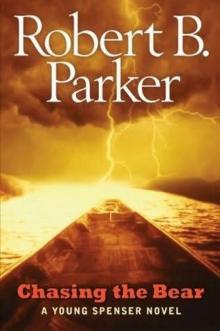 Chasing the Bear
Chasing the Bear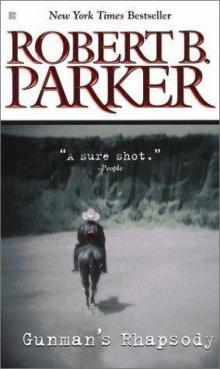 Gunman's Rhapsody
Gunman's Rhapsody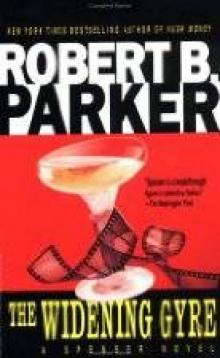 The Widening Gyre
The Widening Gyre Thin Air
Thin Air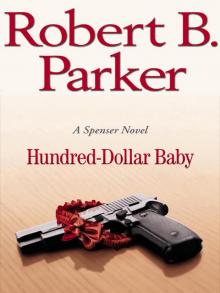 Hundred-Dollar Baby
Hundred-Dollar Baby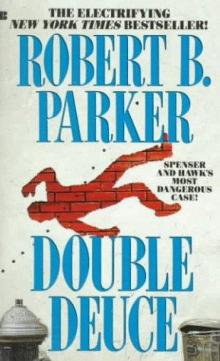 Double Deuce s-19
Double Deuce s-19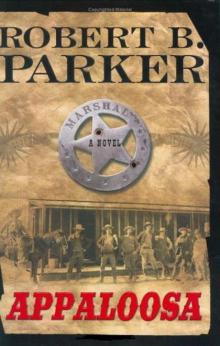 Appaloosa vcaeh-1
Appaloosa vcaeh-1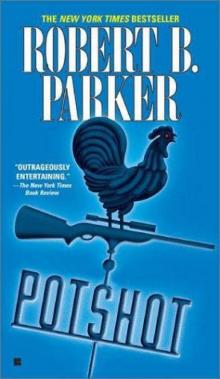 Potshot
Potshot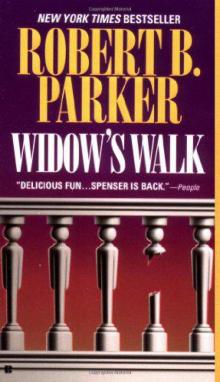 Widow’s Walk s-29
Widow’s Walk s-29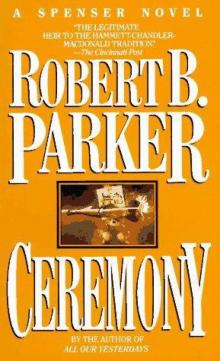 Ceremony s-9
Ceremony s-9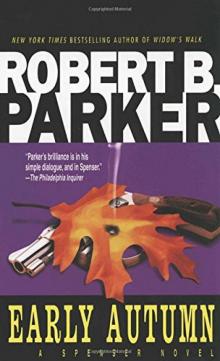 Early Autumn
Early Autumn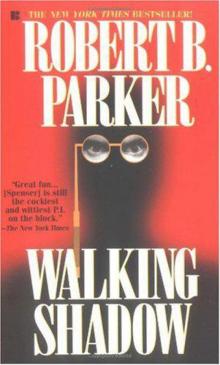 Walking Shadow s-21
Walking Shadow s-21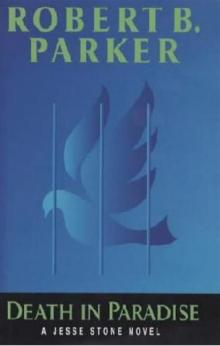 Death In Paradise js-3
Death In Paradise js-3 Shrink Rap
Shrink Rap Blue-Eyed Devil
Blue-Eyed Devil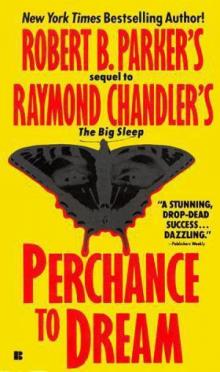 Perchance to Dream
Perchance to Dream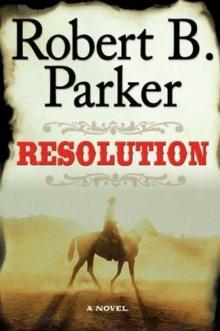 Resolution vcaeh-2
Resolution vcaeh-2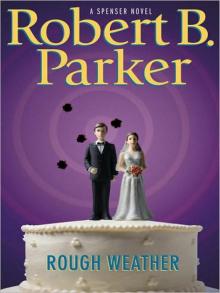 Rough Weather
Rough Weather The Jesse Stone Novels 6-9
The Jesse Stone Novels 6-9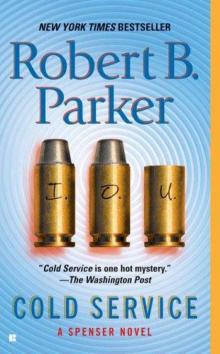 Cold Service s-32
Cold Service s-32 The Godwulf Manuscript
The Godwulf Manuscript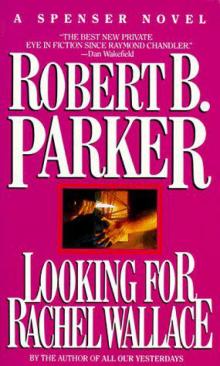 Looking for Rachel Wallace s-6
Looking for Rachel Wallace s-6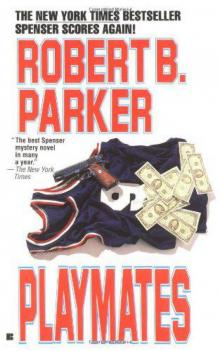 Playmates s-16
Playmates s-16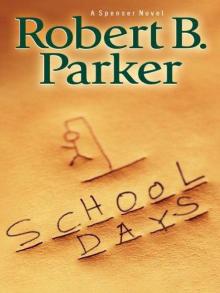 School Days s-33
School Days s-33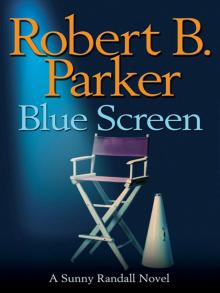 Blue Screen
Blue Screen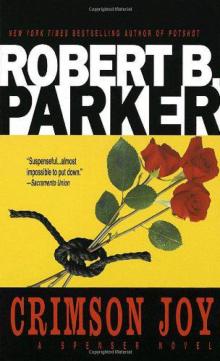 Crimson Joy
Crimson Joy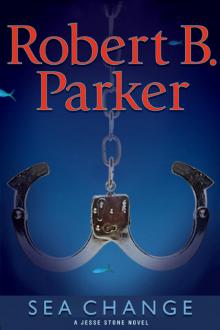 Sea Change js-5
Sea Change js-5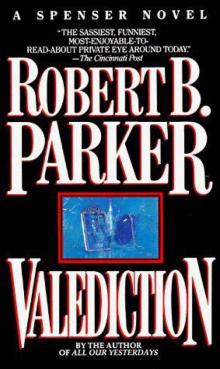 Valediction s-11
Valediction s-11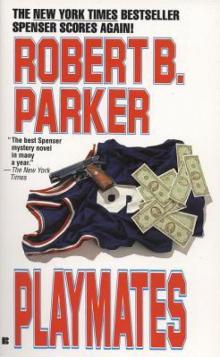 Playmates
Playmates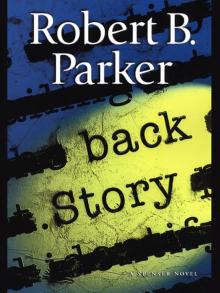 Back Story
Back Story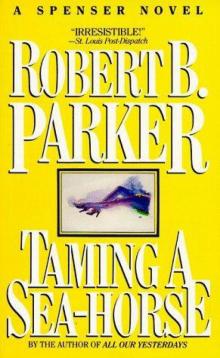 Taming a Sea Horse
Taming a Sea Horse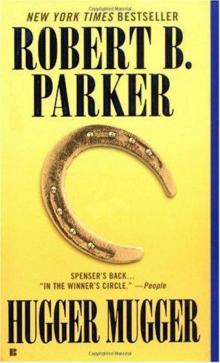 Hugger Mugger
Hugger Mugger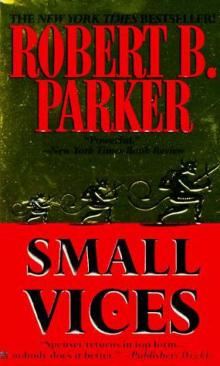 Small Vices s-24
Small Vices s-24 Silent Night: A Spenser Holiday Novel
Silent Night: A Spenser Holiday Novel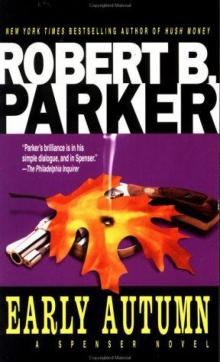 Early Autumn s-7
Early Autumn s-7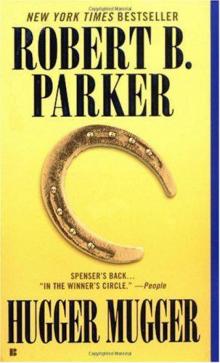 Hugger Mugger s-27
Hugger Mugger s-27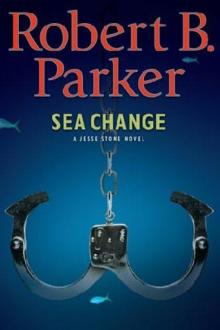 (5/10) Sea Change
(5/10) Sea Change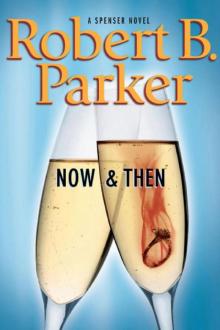 Now and Then
Now and Then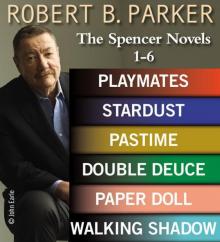 Robert B. Parker: The Spencer Novels 1?6
Robert B. Parker: The Spencer Novels 1?6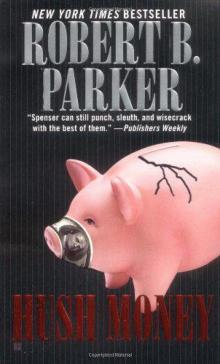 Hush Money s-26
Hush Money s-26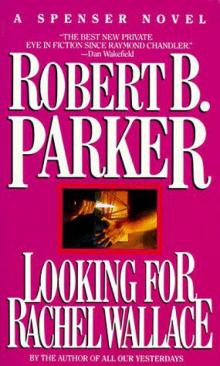 Looking for Rachel Wallace
Looking for Rachel Wallace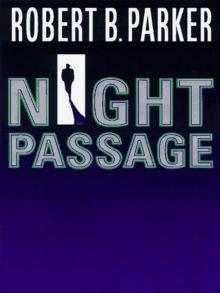 Night Passage
Night Passage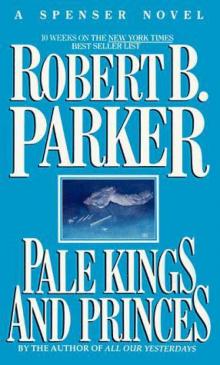 Pale Kings and Princes
Pale Kings and Princes All Our Yesterdays
All Our Yesterdays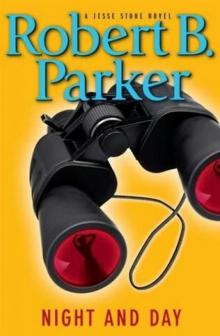 Night and Day js-8
Night and Day js-8 Stranger in Paradise js-7
Stranger in Paradise js-7 Double Play
Double Play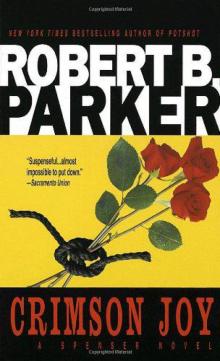 Crimson Joy s-15
Crimson Joy s-15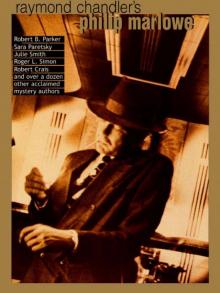 Raymond Chandler's Philip Marlowe
Raymond Chandler's Philip Marlowe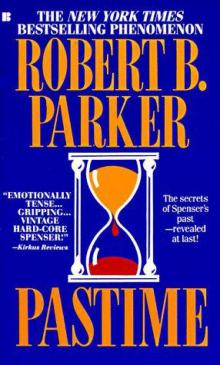 Pastime
Pastime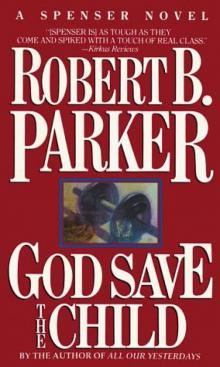 God Save the Child s-2
God Save the Child s-2 Bad Business
Bad Business Trouble in Paradise js-2
Trouble in Paradise js-2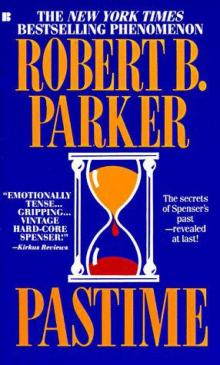 Pastime s-18
Pastime s-18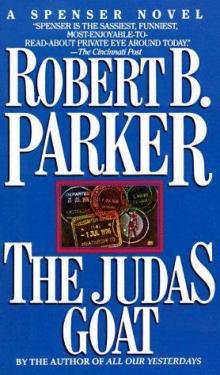 The Judas Goat s-5
The Judas Goat s-5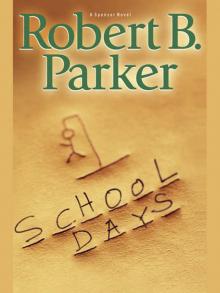 School Days
School Days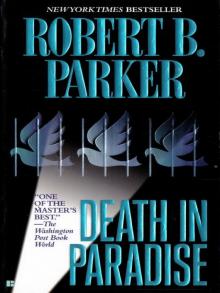 Death In Paradise
Death In Paradise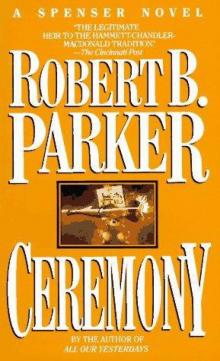 Ceremony
Ceremony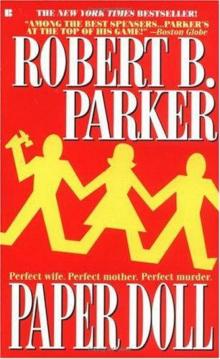 Paper Doll s-20
Paper Doll s-20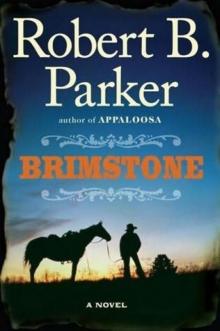 Brimstone vcaeh-3
Brimstone vcaeh-3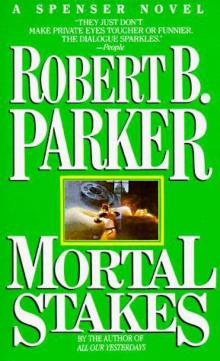 Mortal Stakes s-3
Mortal Stakes s-3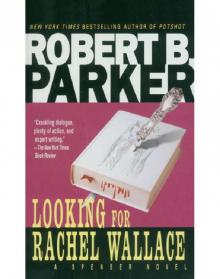 Spencer 06 - Looking for Rachel Wallace
Spencer 06 - Looking for Rachel Wallace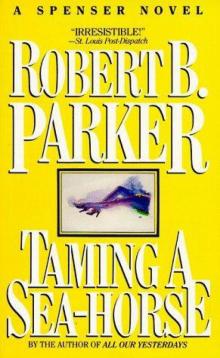 Taming a Sea Horse s-13
Taming a Sea Horse s-13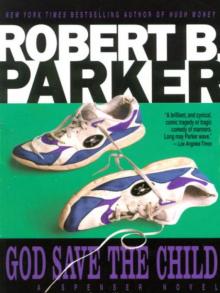 God Save the Child
God Save the Child Chance
Chance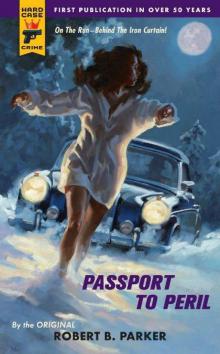 Passport To Peril hcc-57
Passport To Peril hcc-57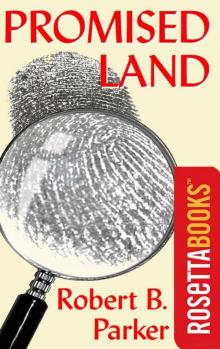 Promised Land
Promised Land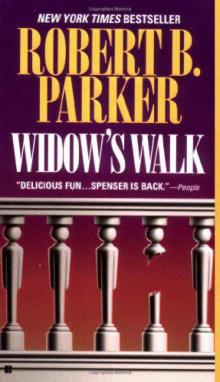 Widow’s Walk
Widow’s Walk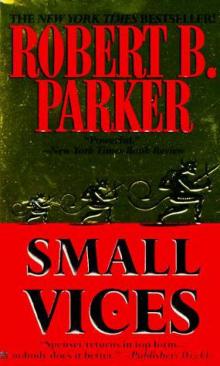 Small Vices
Small Vices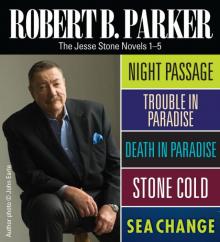 Robert B Parker: The Jesse Stone Novels 1-5
Robert B Parker: The Jesse Stone Novels 1-5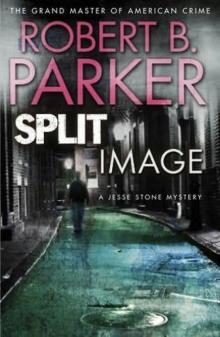 Split Image js-9
Split Image js-9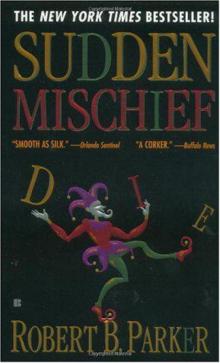 Sudden Mischief s-25
Sudden Mischief s-25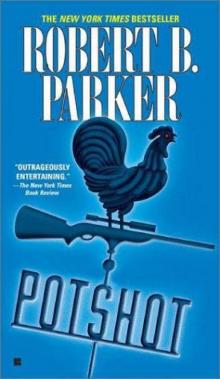 Potshot s-28
Potshot s-28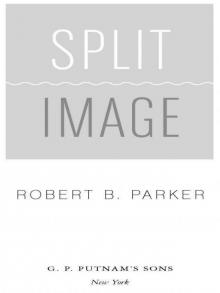 Split Image
Split Image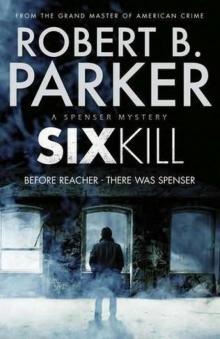 Sixkill s-40
Sixkill s-40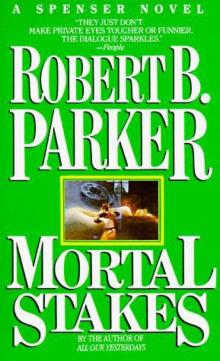 Mortal Stakes
Mortal Stakes Stardust
Stardust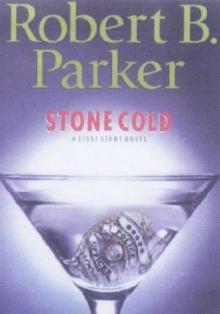 Stone Cold js-4
Stone Cold js-4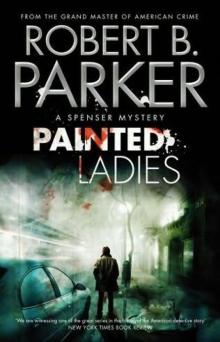 Painted Ladies s-39
Painted Ladies s-39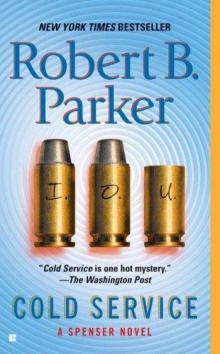 Cold Service
Cold Service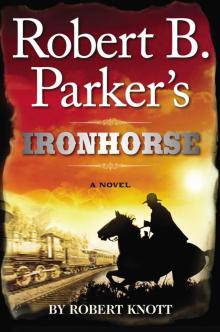 Ironhorse
Ironhorse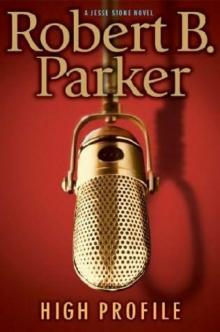 High Profile js-6
High Profile js-6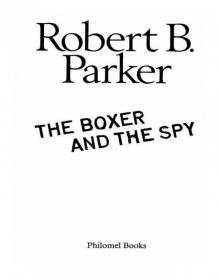 The Boxer and the Spy
The Boxer and the Spy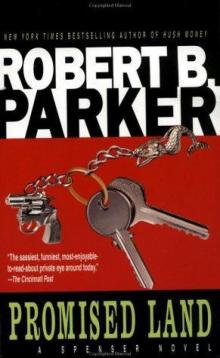 Promised Land s-4
Promised Land s-4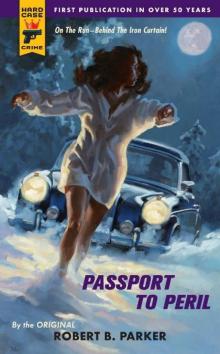 Passport to Peril (Hard Case Crime (Mass Market Paperback))
Passport to Peril (Hard Case Crime (Mass Market Paperback))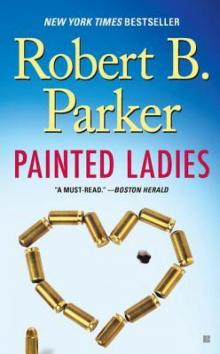 Painted Ladies
Painted Ladies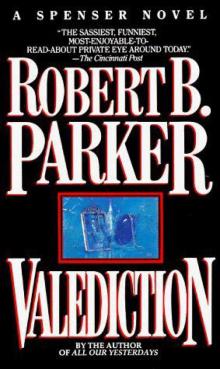 Valediction
Valediction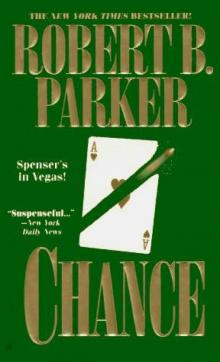 Chance s-23
Chance s-23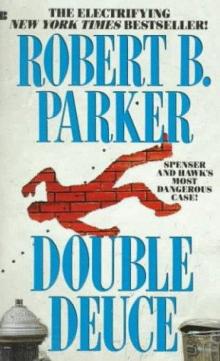 Double Deuce
Double Deuce Wilderness
Wilderness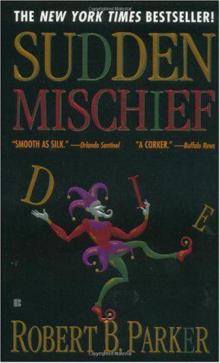 Sudden Mischief
Sudden Mischief Night Passage js-1
Night Passage js-1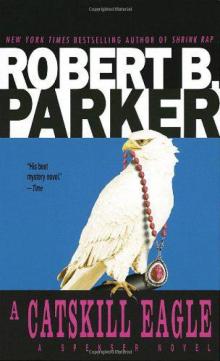 A Catskill Eagle
A Catskill Eagle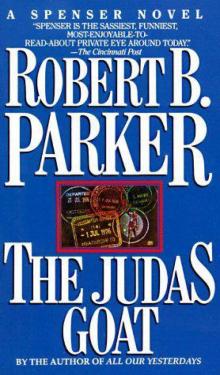 The Judas Goat
The Judas Goat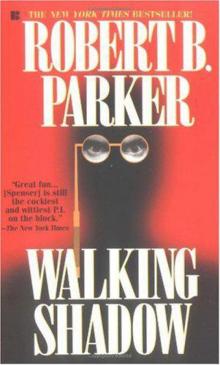 Walking Shadow
Walking Shadow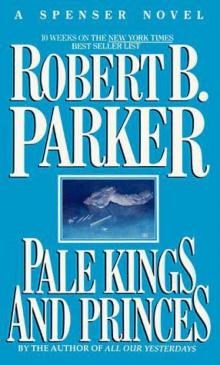 Pale Kings and Princes s-14
Pale Kings and Princes s-14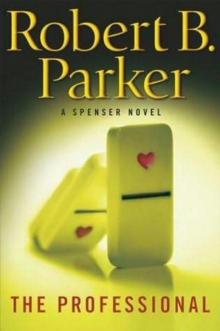 The Professional
The Professional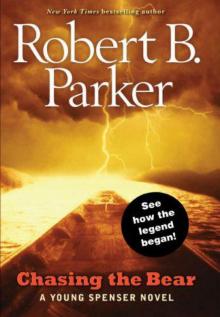 Chasing the Bear s-37
Chasing the Bear s-37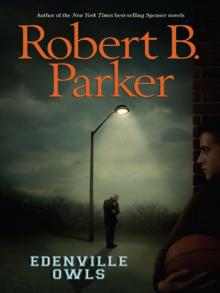 Edenville Owls
Edenville Owls Sixkill
Sixkill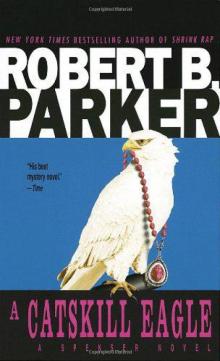 A Catskill Eagle s-12
A Catskill Eagle s-12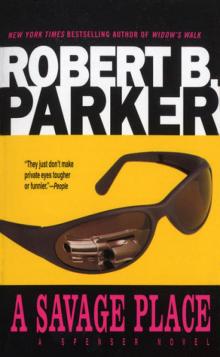 A Savage Place
A Savage Place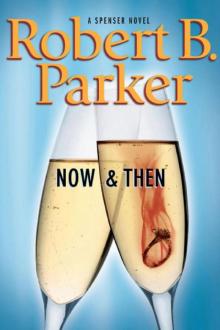 Now and Then s-35
Now and Then s-35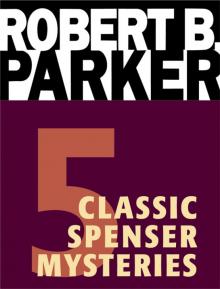 Five Classic Spenser Mysteries
Five Classic Spenser Mysteries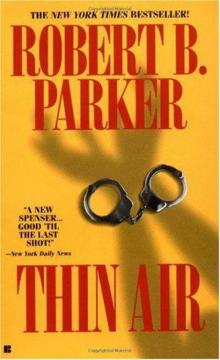 Thin Air s-22
Thin Air s-22